Scams were usually part of everyday activity in earlier times. People mainly experienced or became victims of fraud in real life. However, our age is slowly moving from physical to virtual. Almost everyone around you is now a member of the online community. If we have to pay for a product online, we simply use our credit cards. The online world has expanded and has become convenient for many of us. You wish to purchase groceries, did you know you could just sit back and order your grocery list online? We have truly come far in time. Since the internet is part of our routine, we also have social media sites that were introduced for the purpose of connecting to your friends and family, nearby or far away. They were also created for communities to connect with each other and at a global platform as well. How many social networking site accounts do you have? The most popular social networking sites out there include Facebook, Instagram, Twitter, Tinder, Snapchat and so on. While now you can enjoy a fast, easy, and a suitable life style with the internet, there is a new type of crisis that has been on the rise. Remember how we mentioned scams use to take place in the physical world around you? Since times have shifted, so have crimes. Numerous studies also back up that there is a new type of crime and its sub categories that have become the focus of many criminologists. Since individuals are readily leaving information about them online, crimes has become virtual as well. This means that crimes are still occurring around you but an increasing number of crime cases have been categorized as cyber crime. Here in this article, we will be introducing a prominent type of cyber crime- Scams. To be specific in the later section, we will target Facebook Scam.

We have mentioned the word scam numerous times in the previous section. But, what do we really mean by scam? Chances are that you will be aware of this term. Scam refers to a fraudulent scheme that is constructed and practiced by a dishonest group, company or even an individual. The main purpose of conducting scams is obtaining money from individuals in a community. If scams are not practiced for gaining financial access without permission, it provides scammers with something of value that belongs to another individual. It can be tricky to detect scammers. A scammer is a person who practices scams and in order to do that, they can present themselves as investors, lawyers, teachers, representatives of a company or any other profession. Now that scams can be executed over the internet, new crimes have emerged. Scams cannot just take place in one particular local community’s online world, but it can now take place at a global level. Even the websites and applications that we use to communicate with each other are not safe. Scams have become a huge and recurring part of popular applications like Facebook, Instagram, Twitter and so on.
What is Facebook?

Facebook is an American corporation and an online application that is concerned with social media and social networking services. Back in 2004, Facebook was launched by Mark Zuckerberg and his Harvard college acquaintances. While Facebook was only meant for Harvard students, soon it was expanded to other universities in Boston. Eventually, Facebook became hugely successful and was releases for access to everyone around the world! When you make an account on Facebook, you can access its numerous functions and specifications. This application allows you to send personal messages, receive messages, update your status, upload pictures and albums, add your friends into your account and so on. While the application was meant for communication and connecting with people you know or would like to know, the purpose has blurred over the years. Now Facebook is used by businesses to promote their products, follow celebrities and celebrity gossip, purchase products by Facebook based start up companies and so on.
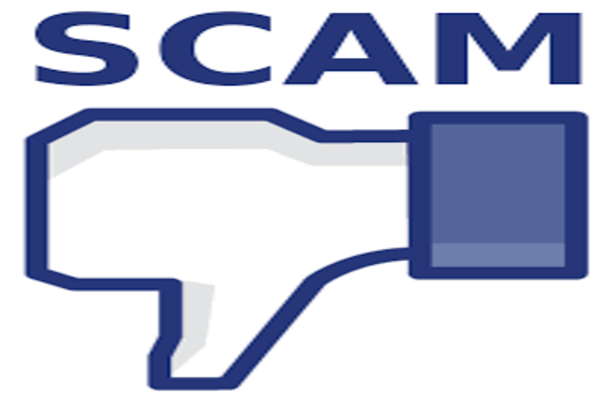
While the activities on Facebook have increased and the number of people indulging in those activities have also increased, Facebook has also become one of the targets of many online scammers. This has introduced a new terminology then, Facebook Scam. Imagine you get a message from an unknown Facebook profile. This person has started to tell you about this new scheme which involves purchasing lottery tickets. What’s special about these lottery tickets? You have a higher probability of winning and if you win, you are guaranteed to win $200,000 in less than a week. That sounds like an amazing deal, right? All you have to do is open this link and purchase the tickets online. As soon as you enter your credit information, you begin to get notifications by your bank that your account has been drained. What just happened? Yes, that’s what we call a Facebook scam.

While scammers might seem to mostly go for money based schemes, there are various types of scams that occur. There’s a higher chance that these scammers are not aware of your account information or personal information as yet. However, once you follow their lead and guidance, they get access to everything you have put and stored online. From Facebook scams, you might also begin to experience unauthorized activities on your other accounts. Because now that a scammer has access to one of your accounts, they can easily move forward with it. The common types of Facebook Scam then include the following.
The Who Viewed Your Profile Facebook Scam:
This scam is popular these days however, it has been around us for as long as Facebook began its operations. Malicious actors begin to advertise and promote webpages and new applications that can allow users to know which other Facebook profiles visited or went through their social profile. Facebook itself has not currently launched any such feature. If Facebook would launch it, the announcement would be made by Facebook itself on a public platform. Because once you download such applications or open the links sent to you, you let these scammers enter your personal space.
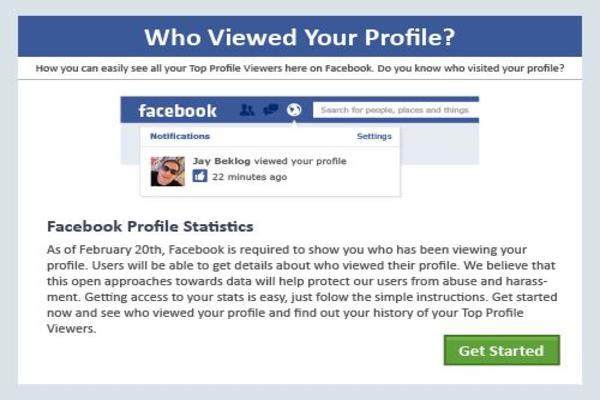
The Buy Extra Facebook Features Such as This Dislike Button Facebook Scam:
This is another common type of attempt used by scammers to access your Facebook account without permission. These scammers try to sell new features that they claim Facebook has launched. However, you must be aware that Facebook features are for free for many people. If in case you have a business or a promotional Facebook page, you might have to purchase extra features. However, you only make authentic purchases by contacting Facebook itself. Facebook does not practice using a third-party to sell their products. Also, Facebook so far has not launched a dislike button that allows you to rate something you view on Facebook.
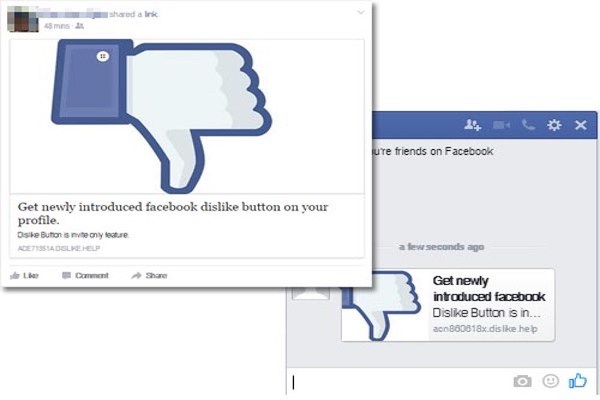
The Fake Viral Videos Facebook Scam:
Viral videos refers to videos that has popularized and are viewed by a lot of people around the world. When you receive these links, you might become curious. Of course, that’s only natural. However, the links that you will receive to follow a viral video, will not lead you to that content. Instead they will breech your security and scammers will then attempt at accessing whatever they can gain from you. When you receive a link to a viral tape of celebrity fake news, you might click on it. When you do so, you will open another window. You might be asked to download a suitable video player. As soon as you do, you will be attacked with malware and more.

The Illegitimate and Free Giveaways Facebook Scam:
This fourth common type of Facebook scam includes getting personal messages or following scammer based Facebook pages that promise you occasion based giveaways such as free business class tickets. Some might offer you to take part in a lottery to win these free giveaways. Scammers can sell these bonuses, prize money, products and so on by making fake profiles using the name of Mark Zuckerberg himself. While that might be a creative way to con someone, it is indeed dangerous.

Stay safe. Here’s how you can avoid common and uncommon types of Facebook scams and scammers!
Other types of scams include business pages. These pages might tell you that you can get this product and more products for free. All you have to do is pay the shipping prices. Once you give in to this scammer scheme, you will be paying for a lot more than just shipping charges. Spammers might also introduce a game for you to play by making a “free account”. However, these games are not supported by Facebook itself and downloading or accessing them can result in bad consequences for you. Of course, the types of scams on Facebook have increased.
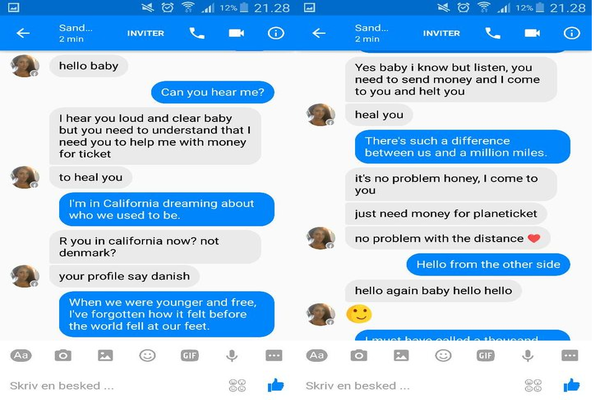
Once scammers gain access to your profile and account information, they will not only attack you. They will begin to send messages, share links on Facebook walls and so on. They will begin to target your friends, add people to your account, make fake accounts with your name and pictures and so on. All a scammer needs is access to one private or public profile!
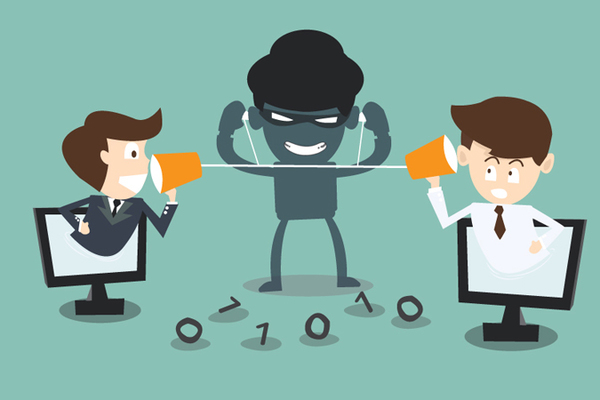
However, Facebook has increasingly become aware of this situation. It allows you to make sure that the Facebook community, including you are safe. So, when you receive a message, a friend request, a link or an offer, or if you locate a business page that is practicing scamming you can report it. From the report button, you can select the appropriate option for choosing to report this page or post. Then, Facebook will be alerted.
In order to stay secure, do the obvious. Do not get involved with following lottery offers from unknown sources, befriend a fake Facebook profile, open malicious links and so on. Doing this will keep you and your loved ones safe. Facebook itself is still safe to use and they have now introduced a secure log in technique that requires authorization from you only. You can still connect with people around you. However, being a little on guard will help you through it!

